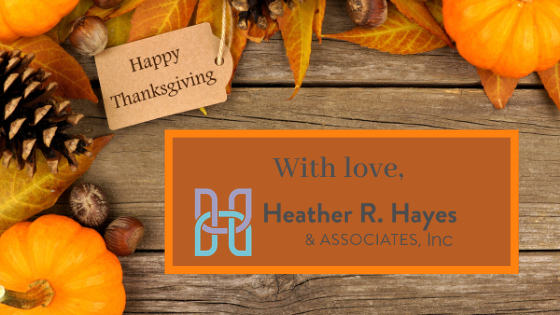Today in the United States we are celebrating Thanksgiving. This is the day where we kick off the holiday season which includes Hanukkah, the Winter Solstice, Christmas and finally our New Year’s celebrations. However, for many people this time of year can seem overwhelming. It can be hectic, stressful and leave people more focused on what they don’t have than what they actually do. However, research has suggested that one of the best ways to counteract feeling stressed, anxious or mildly depressed, is something that is actually built into our Thanksgiving holiday – expressing gratitude.
Gratitude, while an important part of the Thanksgiving holiday, can also extend much further than the holiday season. Research has shown that gratitude can, in fact, benefit many people’s lives and even help maintain sustainable recovery. By expressing gratitude, you are able to acknowledge what is good in your life. In this process, people often realize that the source of what they are thankful for lies, at least partially, outside of themselves. Gratitude is able to help connect individuals to something greater than themselves. This can be connection to other people, nature, or as for many in recovery – a higher power.
A number of eminent researchers have conducted studies on the benefits of gratitude. Dr. Robert A. Emmons of the University of California, Davi, and Dr. Michael E. McCullough of the University of Miami, asked participants of their study to write every week, just a few sentences either focusing on what they were grateful for, or on things that displeased them(1). At the end of the 10 week study those who focused on what they were grateful for felt more optimistic and better about their lives. They also exercised more and had less visits to the doctor compared to those that wrote about what displeased them. According to Dr Emmons, gratitude can ‘lower blood pressure, improve immune function and facilitate more efficient sleep. [As well as reducing] lifetime risk for depression, anxiety and substance abuse disorders, and is a key resiliency factor in the prevention of suicide.(2)’
Of course, being grateful isn’t necessarily as easy as it might sound. When you have faced many adversities in life, sometimes focusing on things to be grateful for can seem impossible.
In recovery, it is normal to experience fear, anxiety and resentment. While we don’t want to avoid these difficult feelings, including a focus on gratitude can be helpful in both our personal and professional lives.
One way to practice gratitude is to flip your thinking. While it is normal and necessary to examine the hurts in our life, we can also pay attention to those who have helped us in both the past and present. Turning toward our painful feelings, such as anger and resentment, also creates space for more gratitude.
A daily gratitude practice could include making time to give thanks for the relationships in your life that bring you joy and self-compassion. This practice could be as simple as taking a few minutes at the beginning of your day to send love to those for whom you are grateful. It could also include taking the time to get in touch with a loved one or offer a kind gesture to a stranger.
We are accustomed to avoiding our negative feelings and when we do, we can avoid positive feelings as well.
Practicing daily gratitude will help you feel more confident, secure and able. Instead of running away from problems, you may start to realize that you can face them. You may find that you feel more compassion for yourself and others.
In addition, cultivating gratitude has been proven to strengthen social connections and relationships. ‘For example, a study of couples found that individuals who took time to express gratitude for their partner not only felt more positive toward the other person but also felt more comfortable expressing concerns about their relationship.(3)’ If you are prepared to let people know that you appreciate them, by expressing what they mean to you, you will reinforce bonds that you have with them. In recovery, the importance of the relationships and connections we have with others can’t be underestimated.
Thanksgiving reminds us of that for which we are grateful. With that in mind, from all of us at Heather R Hayes & Associates, we would like to express our gratitude to each and every person who has played a part in our own journey. We wish you the happiest of Thanksgivings and hope you all have a great holiday.
Sources:
- Emmons, R.A. & McCullough, M.E.. (2003). Counting Blessings Versus Burdens: An Experimental Investigation of Gratitude and Subjective Well-Being in Daily Life. Journal of Personality and Social Psychology. 84. 377-389. 10.1037/0022-3514.84.2.377.
-
https://health.ucdavis.edu/welcome/features/2015-2016/11/20151125_gratitude.html accessed 26/11/2019
-
https://www.health.harvard.edu/healthbeat/giving-thanks-can-make-you-happier accessed 26/11/2019


